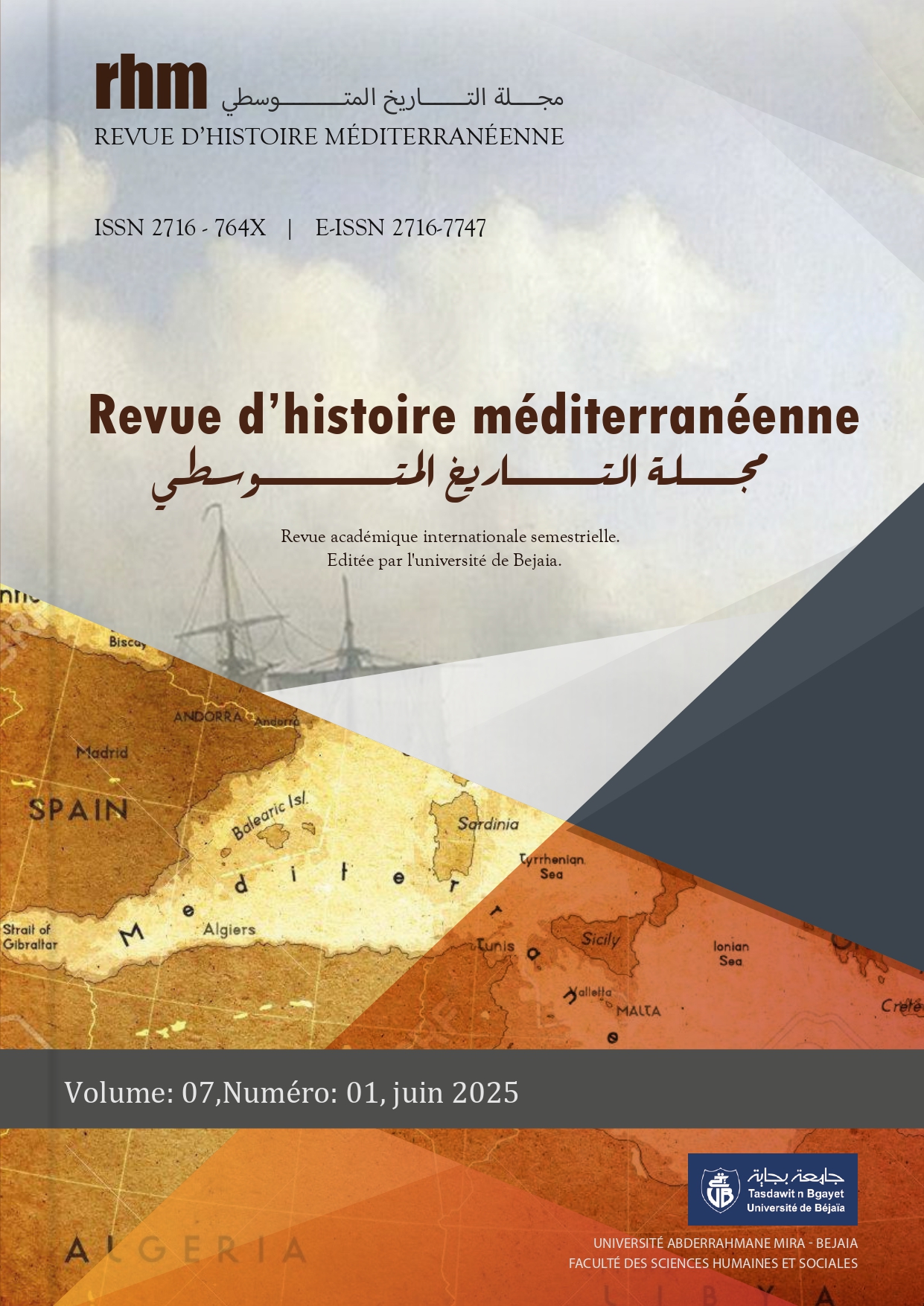Methods of collecting Algerian documents during the colonial period from the second half of the 19th century AD: The Algerian historical society as a model
Méthodes de collecte de documents algériens pendant la période coloniale à partir de la seconde moitié du XIXe siècle : La société historique algérienne comme modèle
Résumé
En 1856, les autorités d'occupation françaises décidèrent, avec l'appui du ministère de la Guerre, de créer la Société historique algérienne. Parmi leurs objectifs : la préparation d'une campagne complète d'exploration du territoire algérien, visant à recueillir tout ce qui permettrait d'obtenir des données et des informations sur les zones sous leur occupation, et à l'étendre aux zones encore hors de contrôle. Parmi les éléments les plus importants inscrits à l'ordre du jour de l'association figurent des documents, des objets de collection, des pièces numismatiques et autres documents susceptibles de révéler l'histoire de l'Algérie et de la région, depuis l'époque libyenne (Antiquité) jusqu'à la domination turque.
La Société historique algérienne et son porte-parole, la Revue africaine, créée la même année, décidèrent que tous les documents en possession de soldats ou de civils impliqués dans la campagne seraient collectés, traduits et annotés, en mentionnant leur localisation géographique. Compte tenu de ce qui précède, cette recherche se limitera aux documents algériens en particulier.
En termes de mode de collecte, de traduction et de méthodes d'analyse, dans la période comprise entre les années 1856 - 1871 seulement - notons que cette campagne de description a duré cent six ans - une période difficile dans l'histoire moderne de l'Algérie, étant donné que les campagnes de l'armée coloniale sur la plupart des villes et régions algériennes, qui ont résisté à l'occupation, ont rencontré une résistance farouche, qui a duré plus de soixante-dix ans, comme la résistance de l'émir Abdelkader à l'ouest et au centre, Ahmed Bey à l'est, Zaatcha au sud (Biskra), les Mokrani et Awlad al-Cheikh dans le reste du pays.
La question primordiale qui se pose ici est la suivante : quelles étaient les raisons qui ont poussé les « autorités coloniales » durant la période susmentionnée à s’intéresser au patrimoine algérien en général, et documentaire en particulier ? Quelle méthodologie avait été suivie par « Revue africaine », porte-parole de la « Société historique algérienne », dans la collecte et l’analyse de ces documents ? Et quels résultats avaient été obtenus ?
cette étude se basera sur l’approche biblio-analytique des documents collectés et étudiés, dès les premiers numéros de la Revue Africaine, parus en 1856 jusqu'à la fin du XIXe siècle. Cette période a été marquée par une activité sans précédent de recherche, classification et de traduction de documents juridiques, militaires, immobiliers et autres, menée par un groupe d'officiers, de traducteurs et d'orientalistes reconnus dans le monde universitaire de l'époque.
L’un des résultats les plus importants que nous avons pu atteindre dans cette recherche, est que la campagne de description de l'Algérie durant cette époque avait pour but non avoué de connaitre de près la société algérienne, culturellement, socialement et politiquement, afin de faciliter aux autorités d'occupation l'extension complète de leur influence et de faire de l'Algérie une province française, voire latino-chrétienne comme l’espérait tout au long du 19eme siècle certains penseurs français,comme Louis Bertrand.











